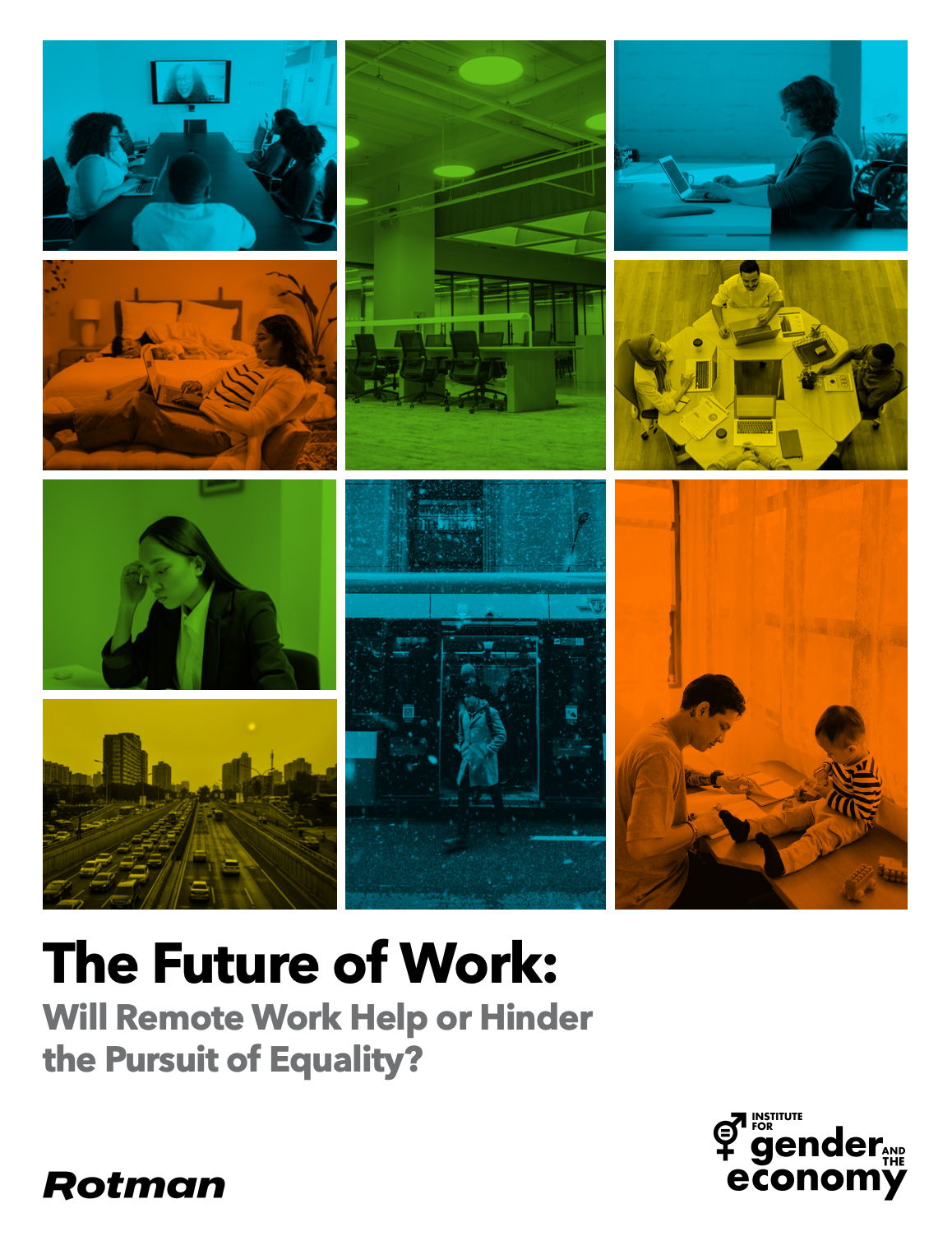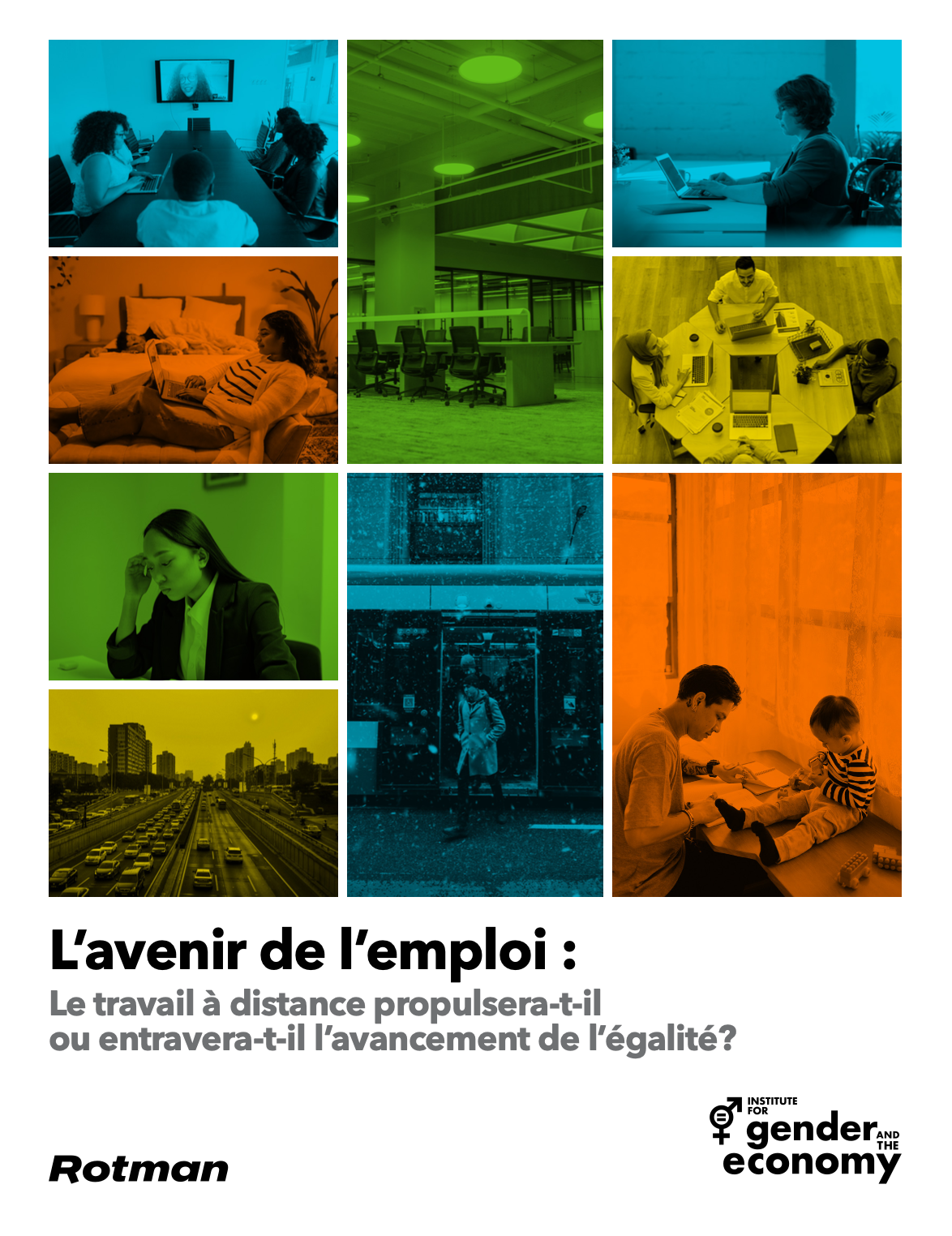OVERVIEW:
The widespread shift to remote work during the COVID-19 pandemic has brought about many questions on the future of work. A recent survey by Microsoft of 31,000 workers in 31 countries suggests that 52% of employees are somewhat or extremely likely to prefer hybrid or remote work in the year ahead, and 53% of employees are more likely to prioritize their wellbeing over work than before the pandemic. The way that people perceive and experience work has changed drastically over the last two years. But how have marginalized workers specifically been affected by the shift to working from home? And what types of work design will best facilitate equity, well-being, and opportunity for workers moving forward?
Analyzing the dynamics of remote work with an intersectional lens allows us to understand how different groups may be experiencing this transformation in labour. Research suggests that remote and hybrid work models have improved many workers’ lives, but it has also been associated with career penalties, work-family conflict, higher stress, and other mental health challenges—particularly for those who already experience inequity. Many of these disadvantages come about not because of anything inherent about remote work but because of bias, stereotypes, and social norms surrounding paid and unpaid work. This report synthesizes key research insights, including the following:
- Remote work policies must be matched by public and organizational policies that address gendered structures. Such structures contribute to increased work-life conflict and mental health issues for caregiving women while working from home. Public policies such as affordable childcare, adequate paid family leave, and a range of options for flexible work can facilitate more egalitarian relationships and households.
- Both workers and organizations benefit from policies that remove stigma of remote work because it increases worker motivation and job performance. Organizations can offer these options on a regular basis and ensure that they are accessible for everyone and universally appealing to people of all genders and backgrounds.
- Office workspaces and work design can be transformed to facilitate different forms of work. Studies indicate that some forms of work practices and routines (i.e., more traditionally bureaucratic arrangements) facilitate the use of remote work and flexible work policies more than others. Flexible work stigma can also be reduced by ensuring information is accessible online, and creating team-building opportunities for hybrid- and remote-working employees.
- Organizational initiatives can decrease work-family conflict, such as by ensuring reliable and consistent communication to all employees, establishing that workers know they do not have to work longer hours at home, and eliminating employee monitoring.
- Remote work needs will not have a major impact on the climate crisis unless accompanied by other policy measures, such as ensuring widespread availability of quality public and other low-carbon transportation and affordable housing in urban areas.
DOWNLOAD THIS RESEARCH OVERVIEW IN ENGLISH/ EN FRANÇAIS
The Future of Work: Will Remote Work Help or Hinder the Pursuit of Equality?” is co-funded by the Social Sciences and Humanities Research Council and Employment and Social Development Canada.
Research Overview prepared by
Carmina Ravanera, Kim de Laat and Sarah Kaplan
Published
Carmina Ravanera, Kim de Laat and Sarah Kaplan
November, 2022









